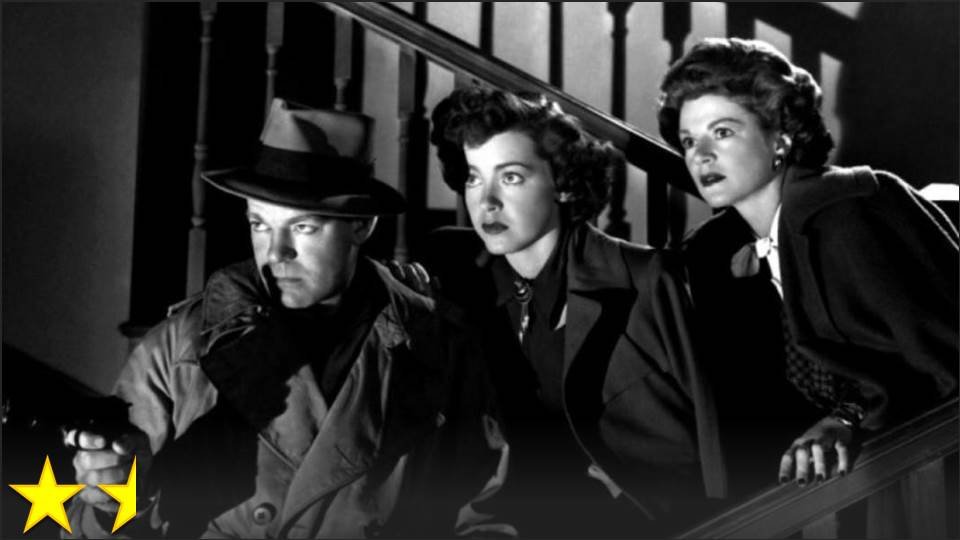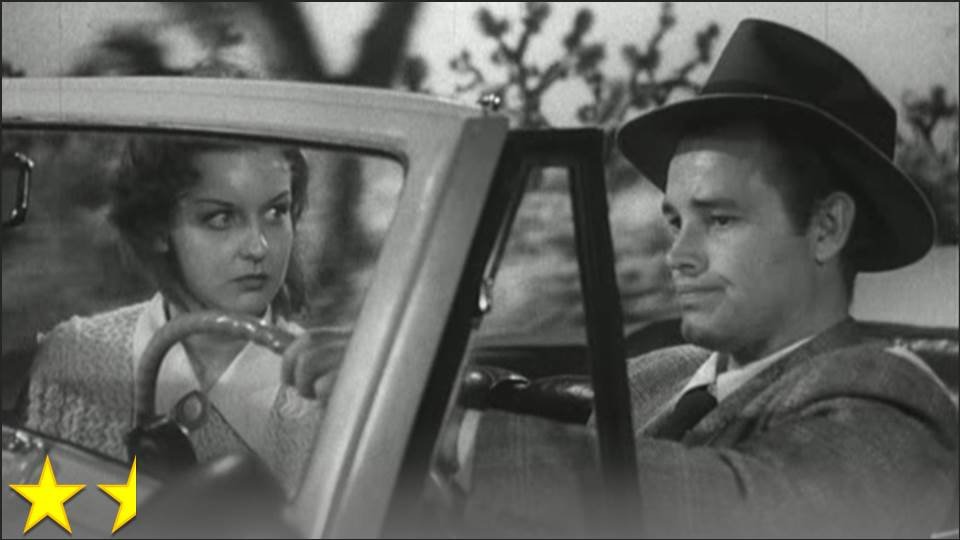SPOILER ALERT
Unlike many of my fellow millennials, I have no reservations or concerns about watching films from Classical Hollywood, because I do not share in their fears that old movies are “too boring.” My issue with classic cinema is that it can be uncomfortable recommending or showing older films to friends of mine without explaining to them beforehand that I don’t condone the sexism or racism that sometimes appears in these classic films. When I heard that Raw Deal brings a female perspective to film noir by having a woman narrate, I was hoping that it would be a film noir I could show to friends with no such concerns. Better yet, the professor of the class that was screening Raw Deal said it was his favorite film noir, which sounded like a good sign (as he was also a big fan of Double Indemnity, which I find excellent). Regrettably, I not only greatly disliked the film, but was very disappointed to find no trace of feminism or anything of the sort. While I do think the recurring theme throughout the film is the theme of the choice(s) of its women, I do not think that the film presents the women’s freedom to choose in a positive light.
Most scenes in Raw Deal are part of a set up for the main female choices in the film: Pat’s choice to lie to Joe about Rick’s goon’s phone call concerning Ann, and then her choice tell him the truth. Pat is the character who is most clearly being silenced throughout the film, never getting the chance to take part in the decision-making in her and Joe’s relationship during the first two acts. She’s actually being told what to do by men even before Joe starts – at the prison, she’s told she’ll have to wait to see Joe, which is just the first of many moments in the film that focus on how she’s forced to wait, and then she and Joe are commanded by the security guard to keep their voices up. When Joe starts, if Pat’s narration is to be trusted, the commanding gets alarmingly strict. She hardly gets to finish one sentence once he gets in the car before he tells her to focus on the wheel, and then when she tells him he doesn’t like his plan to use her and Ann to get through the dragnet, he dismisses her concerns immediately and tells her to get dressed. She is similarly told what to do and/or silenced when speaking her mind – either on screen or according to her voiceover – in their car ride to the border, just after they pass the dragnet, at the campfire, when they make their way to Walt’s bar by the beach, and repeatedly throughout their whole discussion when he decides to leave her behind and go to Rick’s. Pat’s narration makes it seem almost as though it’s the story of a woman who’s trapped in a film that’s about her lover’s love story, not hers.
From the perspective of screenwriting theory, it seems like this would be the obvious set-up for a story about a woman who finally learns to make her own choice. While Joe may be the protagonist and dominate the film’s climax, Pat has her own semi-climactic moment when she decides to lie about the phone call. However, the liberation that seems to be displayed in this scene is undercut by her more climactic scene, when she realizes her one big decision in the film was a mistake. If she learns any moral lesson – although that’s debatable – it’s that she should have done as Joe told her in the first place and told him what the man said on the phone call.
Rick goes further in his mistreatment of women, as I suppose one would expect of the villain, and he shows this by keeping his cool after he’s lost his poker game and found out that Joe successfully escaped, but losing it when his lady friend accidentally spills a little bit of her drink on him. (That’s rather small in comparison, even if it is supposed to be the last straw.) Still, it’s ultimately Pat’s narrative that reveals time and time again that she lives in a world in which women’s views aren’t as important as men’s, and I don’t see how her decision to withhold information from Joe changes that. Ann’s choice to shoot a man, which is also set up earlier in the film (with her mentioning in her apartment that she’d be able to stop Joe if she had a gun), but this choice leads to her overwhelming guilt, and ultimately Joe ends up dying hours later anyway. Add this to the number of times they use the word dame and the way the whistle blows when Ann walks out of the prison and it’s clear that the film does not play as well as one would hope to younger audiences who find anti-feminism in film morally unsatisfactory. While I’ve heard some make the case today that the way women are presented and/or treated in film today seems worse that it was back in the days of Classical Hollywood, this is clearly the kind of movie that people are afraid to find when they watch classic films because it perpetuates the view that it is the woman’s place to shut up and obey. At the end of the day, as much as I really appreciate the film’s charmingly “Noir-Expressionist” visual style, I have found nothing else about the film which is particularly noteworthy or memorable, which presents me in the Song of the South conundrum – if all that’s really memorable about the film are the few parts that seem particularly politically inappropriate, should those alone be the memorable part of its reception and ratings?
In this case, I vote yes.

